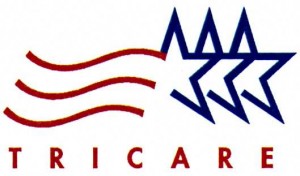- HOME
- ONLINE COURSES
- Our Partnership Begins When You Purchase an Online Course
- Get to Know Dr. D’Arienzo, Relationship Expert
- Florida Premarital Preparation Online Course
- Georgia Premarital Education Program Online Course
- TwogetherinTexas Premarital Online Course
- Tennessee Premarital Preparation Online Course
- Minnesota Premarital Education Course Online
- Oklahoma Premarital Counseling Online Course
- South Carolina Premarital Preparation Course
- West Virginia Premarital Education Course
- Online Marriage and Relationship Tune Up Course
- Florida DCF Certified Parent Education and Family Stabilization Online Course
- Georgia Qualified Parent Education and Family Stabilization Online Course
- Texas Qualified Parent Education and Family Stabilization Online Course
- High Conflict Co-Parenting Online Certificate Course (8 Hours)
- Online Anger Management Four Hour Course (Level 1)
- Online Anger Management Eight Hour Course (Level 2)
- Sexual Harassment Online Training
- PSYCHOLOGICAL & CONSULTIVE SERVICES
- BUSINESS & PERFORMANCE PSYCHOLOGY
- CLINICAL, COUPLES, & FAMILIES
- ADHD Treatment & Evaluation Services
- Anger Management
- Anxiety Treatment & Evaluation Services
- Borderline Personality Treatment Services
- Cognitive Behavioral Therapy (CBT) Self-Help
- Couples Counseling and Marital Therapy
- Consent for Psychological Services for Minors Post-Divorce
- Depression Treatment Services
- Infidelity Recovery
- Jacksonville Counseling and Psychology
- Military Psychology & Tricare
- Narcissistic Personality Treatment Services
- Online Counseling
- Psychoeducational Testing
- Psychological Testing and Assessment
- Psychotherapy & Counseling
- FORENSIC PSYCHOLOGY & EXPERT TESTIMONY
- LIFE COACHING & EXECUTIVE COACHING
- PERSONAL PROTECTION/LAW ENFORCEMENT EVALS & TESTING
- PSYCHOLOGICAL PUBLIC DISABILITY QUESTIONNAIRES (DBQ)
- TEAM
- D’Arienzo Psychological Group Overview
- Dr. Justin D’Arienzo, Psy.D., ABPP
- Mario Decunto, LMHC
- Dr. Amy Hartley, Ph.D.
- Dr. Erica Janson, Psy.D.
- Alan Lipzin, LMHC
- Cynthia Salameh, Esquire
- Wendy Monger, Tutoring Specialist and Academic Coach
- Dr. Michael Nackashi, Psy.D., Clinical Psychologist
- Dr. Ellen Williams, Ph.D., Clinical Psychologist
- Joseph Zichi, LCSW
- Mack, Roman and Roxy D’Arienzo
- Merch & Social Media
- Books
- APPT REQUEST
Military Mental Health Jacksonville, Florida
Military Mental Health Jacksonville, Florida 
See our Tricare Counseling Facebook Page Here
As a Former Active Duty Navy psychologist and current civilian psychologist, Dr. D’Arienzo specializes in military mental health in Jacksonville, Florida. He understands the mental health needs of military members as well as their family members’ needs. He has served as an AD psychologist on the USS KITTY HAWK, in GTMO, Cuba, and at NAS Pensacola, Navy Hospital Pensacola, and Naval Medical Center Portsmouth. Following his departure in 2008 from the service, he has treated active duty members and their families in Jacksonville, Florida.
Dr. D’Arienzo has over 12 years of experience treating veterans and the military population. He is uniquely qualified to treat Tricare Beneficiaries. Protecting your privacy and providing high quality individual therapy, couples therapy, and group therapy in a private practice setting, Dr. D’Arienzo specializes in PTSD, Anxiety, Depression, Insomnia, Family and Marital Therapy, and Presurgical Psychological Evaluations for Bariatric Surgery. Dr. D’Arienzo is a highly qualified veteran treating military related psychological issues! In addition to Dr. D’Arienzo, D’Arienzo Psychological Group also has mental health counselors who accept Tricare Standard and treat children and adolescents. Providing Tricare Beneficiaries with High Quality Behavioral Health Care is our Goal. Again, we understand the special care and privacy important to military members and their families. If you are in need of mental health counseling, psychotherapy, or would like to consult with us, contact us today.
We accept Tricare Insurance and specialize in military mental health issues such as the following:
- Deployments
- Combat PTSD
- Infidelity
- Retirement
- Insomnia
- PTS and ERB Stress
- Phobias
- Anxiety
- Depression
- Psychological Pain Management
- Poor Adjustment to the Military
- Personality Disorders
- Eye Movement Desensitization and Reprocessing (EMDR)
- Cognitive Behavioral Therapy (CBT)
- Critical Incident Stress Debriefing (CISD)
- Anger Management
- Performance and Interpersonal Enhancement
Dr. D’Arienzo, Jacksonville Board Certified Clinical Psychologist and Military Mental Health Specialist is available to meet your needs. Our office will assist you in gaining authorization for behavioral health services with Tricare. Call us at 904-379-8094 to receive Tricare counseling and psychotherapy now. See D’Arienzo Psychological Group Profile on Psychology Today Here
Obama orders better mental health care for vets By Patricia Kime – Staff writer Posted : Friday Aug 31, 2012 16:15:07 EDT President Obama has signed an executive order aimed at reducing the rate of suicide and mental health disorders in veterans and troops by improving access to behavioral health care. Addressing soldiers at Fort Bliss, Texas, on Friday, Obama said the initiative is part of an overall effort to maintain U.S. military superiority. “We may be turning a page on a decade of war, but America’s responsibility to you has only just begun,” Obama said. “Just as we give you the best equipment and technology on the battlefield, we need to give you the best support at home.” The order directs cabinet agencies, including the departments of Veterans Affairs, Defense, Health and Human Services and Education, to work together to expand suicide prevention efforts and to fill vacancies for mental health jobs. RELATED READING: Romney seeks bigger military; could he fund it (Aug. 31; Prime) University of Ky. to study military suicides (Aug. 26) Romney vows he would not raise Tricare fees (Aug. 29) The “Improving Access to Mental Health Services for Veterans, Service Members and Military Families” order also includes actions to improve access to mental health services for service members and veterans, including enhanced partnerships with community providers, increased VA staffing, and mental health research. “If you are hurting, it’s not a sign of weakness to seek help; it’s a sign of strength. And we are going to help you remain strong — ‘Army Strong,’ ” Obama said, referencing the service’s advertising slogan in his speech before more than 5,000 service members at the 1st Aviation Support Battalion hangar at Fort Bliss. Under the directive, VA must expand its veterans’ crisis line capability by 50 percent by Dec. 31 and ensure that veterans who identify as being a danger to themselves or others connect with a trained mental health professional within 24 hours. VA also is required to partner with DoD in developing and implementing a nationwide year-long suicide prevention campaign aimed at veterans. The order also authorizes VA to expand programs based on veterans helping veterans, directing the department to hire 800 more peer-to-peer counselors, and it also directs VA to work with HHS to establish a pilot program that leverages community mental health resources to reduce the waiting times veterans often face when seeking mental health services. VA has faced criticism for not doing enough to help veterans who need mental health treatment. A report in April from VA’s own inspector general said officials inflated success rates for providing timely services for veterans, reporting that 95 percent of new patients seeking mental health treatment received full evaluations for care within the department’s required window of 14 days, when the IG found that just 49 percent were seen within that time frame. Most faced an average wait time of 50 days, according to the IG. VA Secretary Erik Shinseki said the executive order shows Obama’s commitment to veterans. “The president’s historic initiatives and budgetary support will have a positive impact on the lives of veterans and their families for generations to come,” Shinseki said. A WORSENING PROBLEM Mental health concerns have plagued the military since at least 2004, when services’ suicide rates started rising. About 18 veterans a day commit suicide, according to VA estimates. The Army in July faced its worst month for suicides in at least three years; 26 active duty soldiers and 12 Army National Guard or Army Reserve members were suspected or confirmed to have died by suicide. The Marine Corps suffered eight suicides in July, bringing its total for the year to 32 — matching its total for all of 2011. This year, 55 Air Force members have committed suicide, while the Navy has had 39. According to Rand Corp. think tank, nearly 19 percent of service members deployed to Iraq or Afghanistan meet diagnostic criteria for either post traumatic stress disorder or depression. To improve medical care for affected individuals and families, Obama’s order also establishes a task force of representatives from DoD, Education, the Domestic Policy Council, National Security Staff, the Office of Management and Budget, the Office of Science and Technology Policy and the Office of National Drug Control Policy. The panel, known as the Military and Veterans Mental Health Interagency Task Force, will “make recommendations to the president on additional strategies to improve mental health and substance abuse treatment services for veterans, service members and their families,” according to a release. Since the order was announced, veterans and advocacy groups have thrown their support behind the president. “Today, more American service members die by their own hands than at the hands of our enemies, which is why the [Veterans of Foreign Wars] is proud to see our commander-in-chief taking action to address this national crisis,” VFW National Commander John Hamilton said. Paul Sullivan, managing director for veterans outreach for the law firm Bergman and Moore, said he was “pleasantly surprised.” “As commander in chief, he is sending a very strong, anti-stigma, pro-treatment message, essentially saying it’s the best thing to do, go in and get treatment,” Sullivan said. “Second, he’s saying that DoD and VA are going to be ready when they show up, if a veteran is having mental health symptoms and they reach out for treatment.” ‘TOO LITTLE, TOO LATE’ Some critics — including Republican presidential nominee Mitt Romney — have wondered what took so long. “We applaud President Obama for finally getting serious about veterans’ mental health,” Romney spokeswoman Andrea Saul said. “Unfortunately, his actions are too little, too late. Instead of taking conclusive action to stop this national tragedy, the president proposes more toothless bureaucratic task forces and public relations campaigns. “Governor Romney will act decisively. He will double the number of mental health care providers for veterans overnight by opening the military’s Tricare network for our transitioning warriors,” Saul said. “For the past two years, this committee and Congress have been pushing the Obama administration to take the very actions the president has only now outlined in this executive order,” said Rep. Jeff Miller, R-Fla., chairman of the House Veterans’ Affairs Committee. “The funding has been there, the will of Congress has been there. What has been lacking is leadership from the president to use the substantial resources Congress has provided to him for these purposes.” Former Marine Corps Sgt. Geoffrey Ingersoll attributed the rise in suicides to the grueling operations tempo of the past decade and said in an email to Military Times that no new “facilities, booklets or cheesy internal military videos aren’t going to prevent anything.” “It’s too late. Though we appreciate and acknowledge the effort, the damage is already done, Mr. President,” said Ingersoll, who served as a combat photographer in Iraq. Dr. D’Arienzo, Jacksonville Psychologist and Jacksonville Life Coach, provides life coaching in Jacksonville, FL, couples counseling in Jacksonville, FL, family counseling in Jacksonville, FL, marital counseling in Jacksonville, FL, individual counseling in Jacksonville, FL, and individual psychotherapy in Jacksonville, FL. Tricare Counseling in Jacksonville Florida, Tricare Couples Counseling in Jacksonville, Florida, Tricare PTSD Counseling in Jacksonville, Florida, Tricare CBT in Jacksonville, Florida. Tricare Counselor Jacksonville Psychologist, Tricare Counselor in Jacksonville, Florida.
GDE Error: Error retrieving file - if necessary turn off error checking (404:Not Found)
GDE Error: Error retrieving file - if necessary turn off error checking (404:Not Found)
GDE Error: Error retrieving file - if necessary turn off error checking (404:Not Found)





